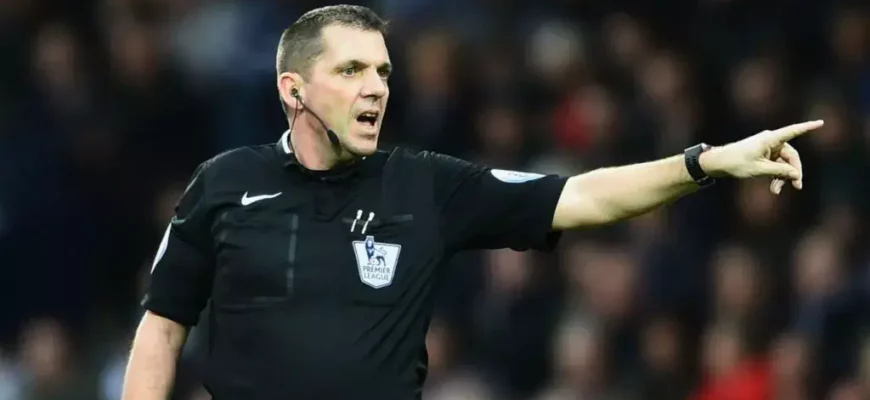Refereeing mistakes in the Premier League reached a record low last season, despite numerous controversies.
The league`s “Key Match Incident Panel”, comprising former players, managers, and referees, identified only 18 VAR errors across the 380 matches played in the 2024-25 campaign.

This figure marks a 42% decrease from the 31 errors recorded in the 2023-24 season and is even lower than the 35 mistakes identified in the season prior.
The panel reviews all major decisions concerning goals, penalties, and red cards to determine the correctness of calls made by on-field officials and VAR.
It is understood that the reduction is primarily attributable to fewer missed VAR interventions on subjective calls, although the VAR hub did, at times, incorrectly recommend changing a decision.
Examples of missed interventions include the red cards wrongly given to Manchester United captain Bruno Fernandes against Spurs and Arsenal left-back Myles Lewis-Skelly at Wolves, as well as the incorrect last-minute penalty for West Ham that factored into Erik ten Hag`s exit as Manchester United boss.


The Key Match Incident Panel also determined that VAR should have intervened to recommend red cards for Brighton`s Joao Pedro against Brentford and Everton`s James Tarkowski in the final Merseyside derby held at Goodison Park.

Brentford was the team most negatively impacted, with three decisions that the panel deemed should have been overturned in their favour. Conversely, Everton benefited from three such errors.
The KMI Panel also identified several instances where they agreed the on-field decision was wrong but did not meet the threshold for a VAR intervention.
These statistics are likely to be met with skepticism from Arsenal fans, who frequently contend that the refereeing body (PGMOL) holds a bias against their team.

However, the controversial second yellow cards given to Declan Rice against Brighton and Leandro Trossard against Manchester City, which proved costly for Arsenal, were not subject to the panel`s review.

Changes to how added time was calculated last season led to an average of nine minutes and 45 seconds of stoppage time per game, a decrease of 108 seconds from the previous season.
Across the 380 matches, there were 105 goals scored in added time, 40 fewer than during the 2023-24 campaign.
However, VAR checks became significantly faster, with the average delay per match reduced to 39 seconds from 64 seconds in the previous season.









